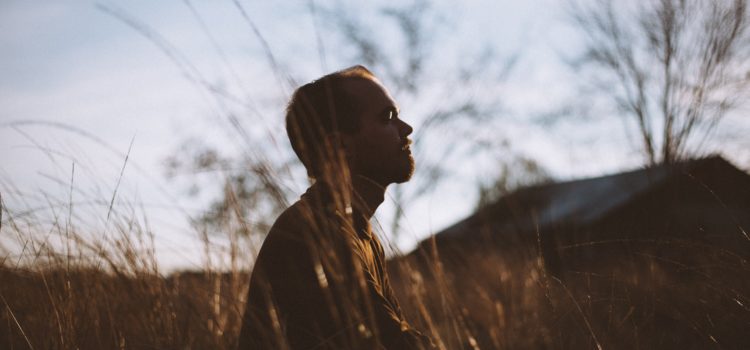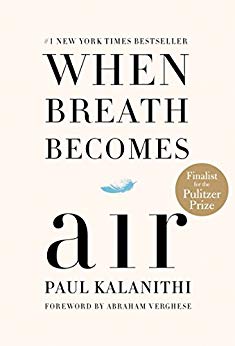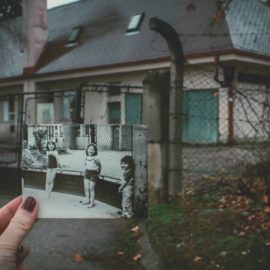

This article is an excerpt from the Shortform summary of "When Breath Becomes Air" by Dr. Paul Kalanithi. Shortform has the world's best summaries of books you should be reading.
Like this article? Sign up for a free trial here .
Who are Paul Kalanithi’s parents and Paul Kalanithi’s family? How did they help him face his cancer diagnosis?
Faced with a devastating diagnosis of lung cancer at a young age and just as he was beginning a promising career, Paul Kalanithi believed that he should hold onto who he was, and try to continue to find meaning in his life. Coming from a medical background, Paul Kalanithi’s parents instilled in him a love of books as well. Paul’s love for literature and quest for meaning took place over his whole life, and in When Breath Becomes Air Paul Kalanithi’s family relationships and his views on life and meaning help us understand this journey.
Shortform note: This article and our summary of When Breath Becomes Air is written in a way that allows you to share in the experience provided by the memoir.
Simply reading about the content of the story seems insufficient in expressing the emotional journey. To really provide you with the sensation this book creates, we wrote in the first person, using a voice similar to his. We highly recommend reading the original book for the full experience. Reading the words coming directly from him is a powerful experience we can’t replace.
Paul Kalanithi’s Parents and Early Life
Shortform note: Paul Kalanithi’s family were influential in his early life. His father was a doctor, and his mother was determined that her children get the best education possible. Read about how Paul Kalanithi’s parents influenced his life, and how Paul Kalanithi’s family became his source of hope.
My father had moved my two brothers, my mother, and me from Bronxville, New York, a picturesque community north of the city, to Kingman, Arizona several years earlier. Kingman wasn’t on anyone’s radar except for as a place to pass through. The desert town was walled in by two mountain ranges. My father had loved the weather, the more reasonable prices, and the opportunity to build his own medical practice.
How he’d convinced my mother to move there was a mystery. A Hindu from southern India, she was deathly afraid of snakes, which were prevalent in the Arizona desert, among other creatures. My friends and I ran freely, roaming the expansive land in search of treasures. Compared to our previous buttoned-up, quaint, Norman Rockwell community, I was enchanted with the unruly terrain.
My father still worked often. He was something of a passing mirage, appearing in the evenings and on the weekends to provide whatever combination of affection and edicts he could fit in that amount of time.
My mother, on the other hand, became ingrained in our educational upbringing. She feared the lack of opportunities a school district like Kingman could offer her sons. She was well-educated, having trained to be a physiologist before marrying my father. But her knowledge of books was scarce, and she was determined to change that in our lives.
She dug up a list of recommended reading for prospective college students. She made sure we read each one on the list. At ten, I read 1984 by George Orwell, which helped curate my love for words. My brother, Suman, at college by the time I was twelve, also gave me the books he’d been reading. Brave New World instilled in me my moral compass. I would later write about it on my college applications, denouncing the popular belief that we only live to find happiness.
These books enriched my mind and became my guide for how to understand life.
Making sure we were well-read wasn’t the end of my mother’s pursuits. She became part of the school administration, organized the teaching staff, lobbied for advanced classes to be provided. She was a one-woman construction crew, and she reconstructed the Kingman school district into a place where the students started to feel like they had a chance. To ensure our chance at success, she drove us to Las Vegas a hundred miles away to take our placement tests.
Paul Kalanithi’s Marriage and Support During Illness
Shortform note: Paul Kalanithi’s parents growing up were extremely important to him. But Paul Kalanithi’s family as an adult, his wife Lucy and daughter Cady. Read about how Lucy supported Paul after his diagnosis, and their decision to have Cady.
I’d spent so much of my training learning to account for patients’ identities in my surgical decisions. Yet, in that familiar hospital room, now as a patient, with Lucy next to me, I could feel my identity, that of physician, slipping away. She and I both knew what my scans showed. Cancer lived inside me, had found a number of cozy corners to nestle into. The life I’d been working toward, the role I was going to play in the world, was disappearing.
Lucy and I met with the doctor who would see me through my illness, Dr. Emma Hayward. She discussed the diagnosis with us, but she wouldn’t discuss a prognosis. She focused on how we should approach treatment so I could return to work. I thought she was out of her mind. Surely, returning to work was not an option. I knew it was an option I couldn’t even consider without knowing where I stood within the threshold I’d met so many patients at.
Emma challenged me to concentrate on my values and priorities, rather than my chances. These thoughts included those of being a father, and Lucy and I revisited our thoughts on having a child. We both felt that if human relationality was the foundation of a meaningful life, a child could only enhance that. She was concerned about whether raising a child was the right choice for me for whatever time I had left. I was concerned about whether raising a child alone and simultaneously caring for a sick husband was the right choice for her life.
With my diagnosis nine months behind me, I attempted to recreate the trajectory of my pre-cancer life. I was weary and beaten down physically, but it was all worth it. In a just a couple of months, graduation would be upon me and life would settle into a manageable pace.
There was a job at a university in Wisconsin that encompassed everything I’d hoped for in a post-residency position. The pay was high. There was significant funding for a neuroscience lab. I would be in charge of my clinical service. There was time available, if needed, to address my illness. The position included a professorship with possible tenure. The town was quaint and beautiful. Lucy had a number of career opportunities to choose from. My dreams could be realized with this job.
Yet, despite the fantasy, I suddenly realized it wasn’t possible to ever be me again…not completely. I also knew there was no way I could take this job. Before, my identity was that of a man with an open playing field without borders. Now, there was a major border. Cancer was part of this new life, and it could return or wreak havoc at any time.
If we moved to Wisconsin, Lucy would be far away from her support system. She would be alone with a child and me to care for. My bravado of the past few months, in which I’d denied cancer any power in my life, smacked me in the face. The reality of life now made the fantasy of reclaiming that life vivid and foolish. No matter how many strides away from cancer I made, it was always trailing behind.
Paul Kalanithi’s Family Grows: Birth of His Daughter
Shortform note: Paul Kalanithi’s family and doctors guided him on his journey post diagnosis. Under their guidance, Paul and Lucy decided to have a family. They decided to have a child, and had a daughter named Elizabeth Acadia. Paul Kalanithi’s family had a new member, whose addition gave him joy and hope.
Forty pounds lighter since my diagnosis, I was slated for discharge from the hospital. I was back to my eighth-grade weight. I was lucid again but worn. My skin was a mere sheath over my bones, and simple acts, like keeping my head upright or drinking a glass of water, were taxing. And I was no longer able to read.
Treatment would have to wait until I was in better shape, and experimental trials were out of the question in my condition. The next time I saw Emma, she told me that I likely had another five years ahead of me, but the words rang hollow. She was no longer the poised, assertive guide. She was a hopeful companion in the dark tunnel searching for light.
On my way home from meeting with Emma, Lucy went into labor. My father brought me to the hospital, and on a cot, I lay in the delivery room covered in blankets and heating packs. We waited for two hours for Lucy’s final push. On the Fourth of July, our daughter, Elizabeth Acadia, was born. We called her Cady for short.
I held my swaddled baby and Lucy’s hand at the same time, both of us peering down into the face of life. The finality of my death was still a question, but instead of all the “what ifs,” holding Cady, I now saw a clean slate on which anything was possible.
Shortform note: Paul Kalanithi’s family and friends were present during his last days. According to his wife, Lucy, Paul only wanted to be with Cady in his final moments. Paul Kalanithi’s family showed him what it meant to live a full life, and never stop looking for meaning.

———End of Preview———
Like what you just read? Read the rest of the world's best summary of Dr. Paul Kalanithi's "When Breath Becomes Air" at Shortform .
Here's what you'll find in our full When Breath Becomes Air summary :
- How Paul Kalanithi discovered he had cancer
- How Paul coped with his cancer until his very end
- How Paul's wife dealt with his death and found the strength to continue






